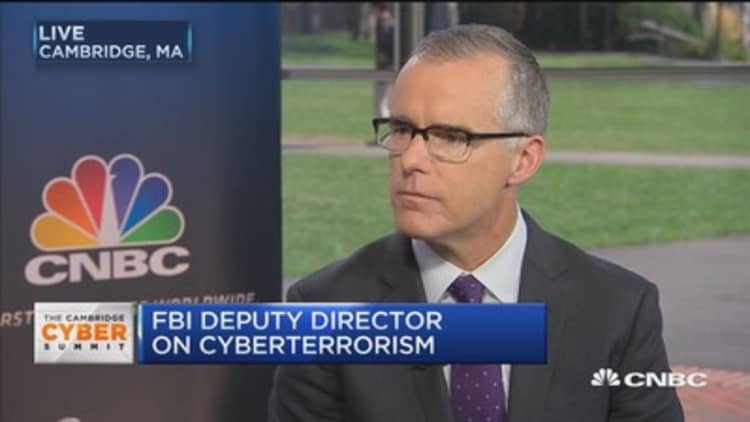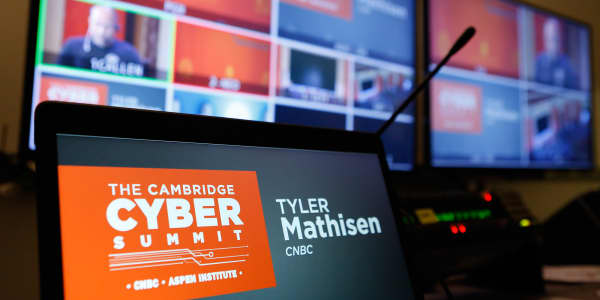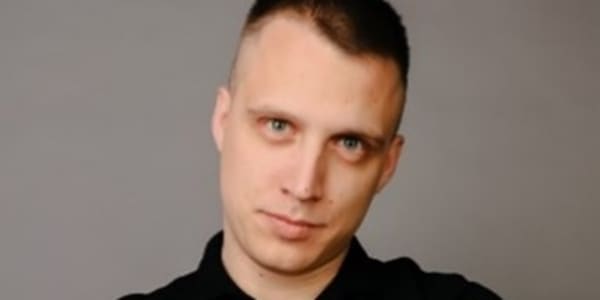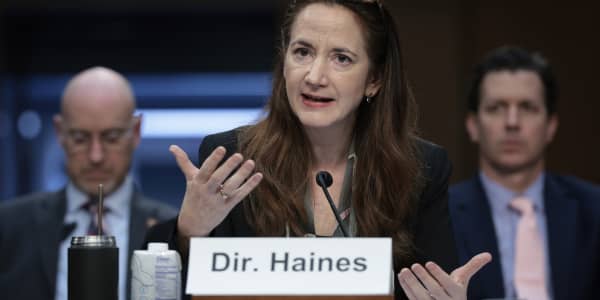The United States faces any number of threats, but the possibility of a homegrown terrorist that domestic law enforcement doesn't detect is what keeps the top echelon of the FBI up at night, said deputy director Andrew McCabe.
McCabe's comments came during a panel discussion at the Cambridge Cyber Summit, an event co-sponsored by CNBC, MIT and the Aspen Institute that focused on challenges in cybersecurity.
Terrorist groups like ISIS have become much more sophisticated in their creation and distribution of propaganda, and as such are better able to target people who might be converted to their cause, McCabe said.
At the same time, terrorists are also getting better at using encrypted technologies, so once the terrorist group makes contact with a potentially receptive person, those conversations increasingly "go dark," mean they go out of reach of law enforcers who would try to monitor them, he said.
Some big tech companies, notably Apple, have insisted that encryption is an important part of their product design, and Apple CEO Tim Cook has insisted they will resist any outside efforts to change that.
Earlier this year, Apple fought against a government order to help hack the iPhone of one of the San Bernardino terrorists. Eventually, the FBI said it got into the device with the help of a third-party.
When asked if the FBI and other law enforcement should be given access to that data, McCabe said that question should not be determined by law enforcement, but by Congress.

Later Wednesday, in an interview on CNBC's "Squawk Alley," McCabe said the issue boils down to the cost of privacy versus national security.
"There is a balance between those two. There is no world of absolute, complete privacy or a world of complete national security," he said.
Tech companies argue that any so-called "backdoors" in their systems compromise their ability to ensure security and privacy.
McCabe offered Silicon Valley an olive branch. "We haven't made a lot of progress by standing on opposite sides of that divide," he said. "What we need going forward is opportunity to come together to talk about solutions."
McCabe said he's confident a solution can be reached that meets a "reasonable privacy concern" but also a "reasonable national security concern."
Reuters reported on Tuesday Yahoo allegedly complied with a classified U.S. government demand to scan hundreds of millions of email accounts. Yahoo called the report "misleading."
The conference is sponsored by CNBC, MIT and The Aspen Institute.
— CNBC's Matthew J. Belvedere contributed to this report.






